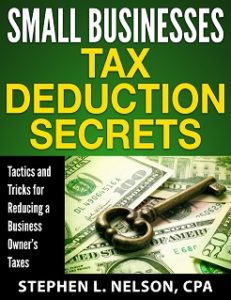If you’re new to the U.S. system of taxation, you’ll find the situation pretty confusing.
The U.S. system of taxation (and we say this as tax accountants) surely ranks as one of the most confusing and unnecessarily complicated systems in the developed world.
Fortunately, if you get a handle on a handful of issues, you can usually get started right.
Am I a resident alien or nonresident alien?
The first thing, for example, that you need to do is figure out whether you’re a resident alien or a nonresident alien for tax law purposes.
You are a resident alien if you meet one of two tests: the green card test or the substantial presence test.
If you are not a resident alien under either of these tests, then you are generally considered a nonresident alien (though some taxpayers in this situation can elect to be taxed as resident aliens).
You meet the green card test if you were a lawful permanent resident (immigrant) of the United States at any time during 2014 and you took no steps to be treated as a resident of a foreign country under an income tax treaty. (This is referred to as the “green card test” because to be a lawful permanent resident, you usually need a green card.)
The specifics of the substantial presence test vary a bit from year to year, so check the IRS’s website to see if you qualify. In 2014 you met the substantial presence test if you were physically present in the United States for at least 31 days in 2014, and 183 days during the period composed of 2014, 2013, and 2012. Days in previous years are calculated using the chart on the website referenced above.
If you change between nonresident and resident alien midway through the tax year, you are considered a dual-status taxpayer. Note that there are some special rules to know for how to file your tax return during your dual-status year.
Why Residency Status Matters
Okay, once you know whether you’re a resident alien or a nonresident alien, you can determine whether you need to worry about U.S. tax laws.
If you’re a resident alien, you get treated like a U.S. citizen for tax purposes, which means that the U.S. wants to tax you on your worldwide income. (Don’t freak out yet if you’re just learning about this for the first time. The U.S. tax laws provide plenty of ways to mitigate any double taxation of income earned outside the United States.)
Resident aliens, by the way, file a Form 1040 with the Internal Revenue Service.
If you’re a nonresident alien, you don’t owe taxes to the United States except in cases where you’re actually earning income in the United States. For example, if you come to the United States to work briefly, you may owe income taxes on that income. Or if you invest in a business and the business earns money, you may owe income taxes on that income. (More on this in a few paragraphs.)
If you are a nonresident alien, you file a Form 1040NR (more on this form in a minute).
How do I apply for a tax ID number?
If you’re a resident alien, you’ll likely need a Social Security number to file your tax return. (Probably you’ll have received this number as part of obtaining residency.)
If you’re not eligible for a Social Security number, then you will need an ITIN (individual taxpayer identification number) if you do not already have one. To obtain an ITIN, you file Form W-7.
What income do I have to report on Form 1040-NR?
You must report three types of income on Form 1040NR:
- Income effectively connected with a U.S. trade or business
- Income not effectively connected with a U.S. trade or business
- Income exempt from U.S. tax
What should I know about treaty-based return positions?
Nonresident aliens in particular can often save a lot of tax by taking treaty-based return positions. And while you might think that learning tax treaty provisions takes a lot of esoteric know-how, the reality is that there are some common provisions that many tax treaties with the United States tend to have in common:
- In certain situations, pay received by residents of the foreign country for personal services performed in the United States is exempt from U.S. income tax.
- Pay received by professors and teachers who are residents of the foreign country but who temporarily work in the United States is exempt from U.S. income tax.
- Residents of the foreign country who are temporarily students in the United States are often exempt from income tax.
- Wages and other compensation paid by governments to their residents who are present in the United States as nonresident aliens are generally exempt from U.S. income tax.
- Pensions and annuities from the foreign country receive the same beneficial tax treatment as U.S. pensions and annuities do.
Always check the tax treaty the United States signed with your country of residence to see if there are any favorable provisions you should know about. Note that IRS Publication 901 and IRS Publication 54 Chapter 6 are good resources for this stuff, as is the IRS’s list of links to tax treaties here.
IRC § 6114 requires taxpayers who take treaty-based return positions to disclose it to the U.S. government. If you fail to file, you may have to pay a $1,000 penalty. You use Form 8833 to notify the IRS that you are taking a treaty-based return position.
If You Own a Small Business, You Are Probably Paying Too Much Tax
 Small-business owners often don’t do well maximizing their legitimate tax deductions. For example, they don’t structure their operations to protect legitimate deductions. They often don’t do enough to create new deductions. And they almost never understand how to recycle, or double-deduct, amounts that can be used more than once.
Small-business owners often don’t do well maximizing their legitimate tax deductions. For example, they don’t structure their operations to protect legitimate deductions. They often don’t do enough to create new deductions. And they almost never understand how to recycle, or double-deduct, amounts that can be used more than once.
That is all a financial tragedy! Getting smarter about tax deductions can save you a bundle.
If you’re thinking after reading this that maybe you can do better with your tax deductions, consider our $40 ebook Small Businesses Tax Deduction Secrets.
This 70-page ebook provides detailed instructions about how you can save thousands of dollars every year in income and related taxes simply by more effectively using legitimate small-business tax deductions. Interested in more detailed information? Click here.
Tip: If you are a client of our CPA firm, don’t purchase this ebook—or any of our other ebooks. Just email us and ask for your complimentary copy.
Immediately Downloadable & Money-Back Guarantee
The book is instantly downloadable upon purchase.
Also, we provide a money-back guarantee. If you don’t find the information you need or want, no problem. Just email us and request your refund.

I definitely think anyone considering making the decision to become a US resident should probably give this a quick read and then see if they want to reconsider. The US is great… except for the part where they tax you into the ground, and give you huge monetary penalties if you fail to pay for any reason, and if you don’t pay, the IRS sends their SWAT team to your house or business.
Speaking of, why exactly does the IRS have a SWAT team? Am I the only one who sees something wrong with that?